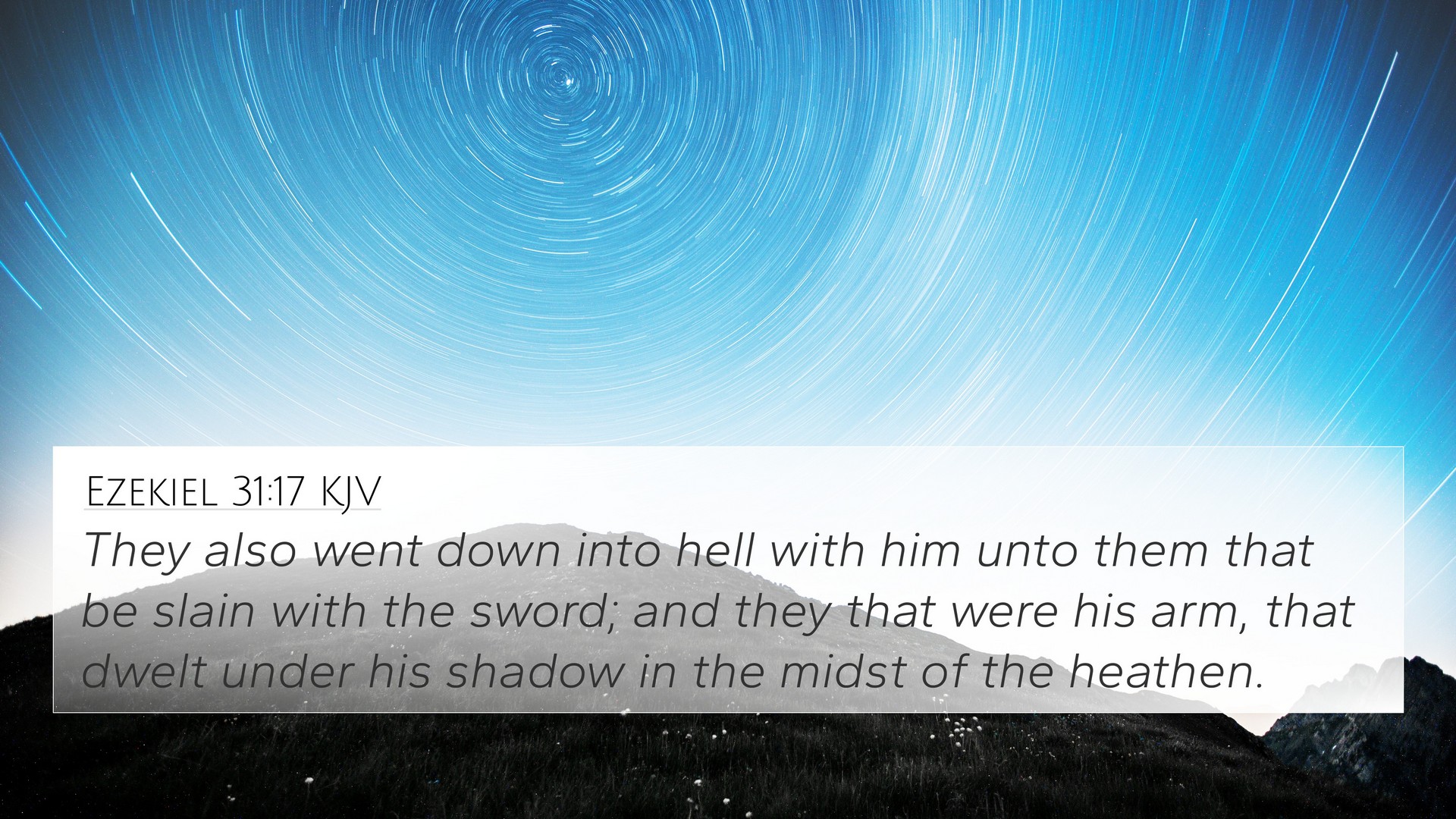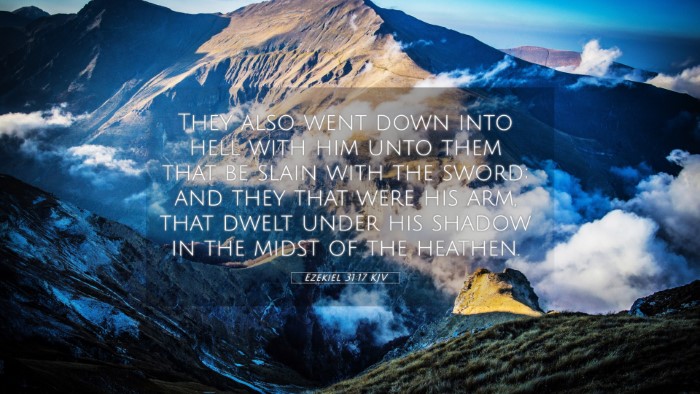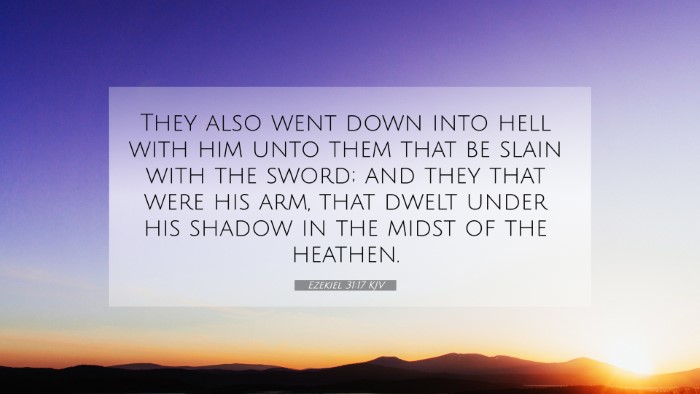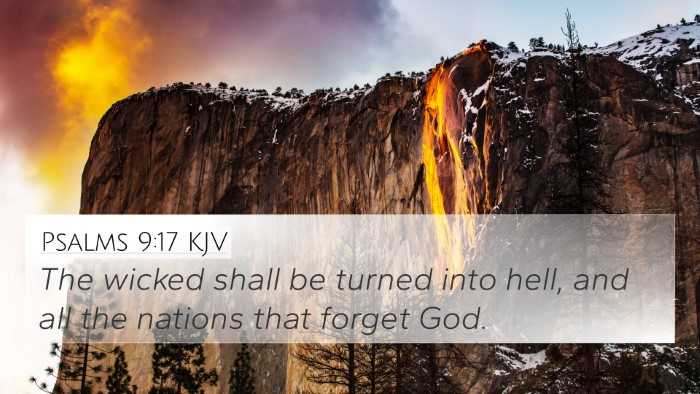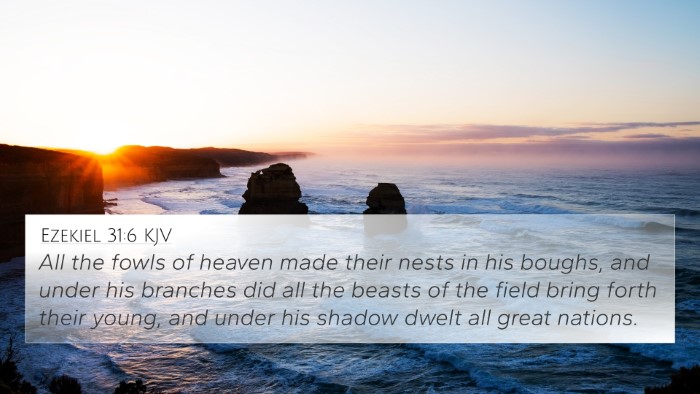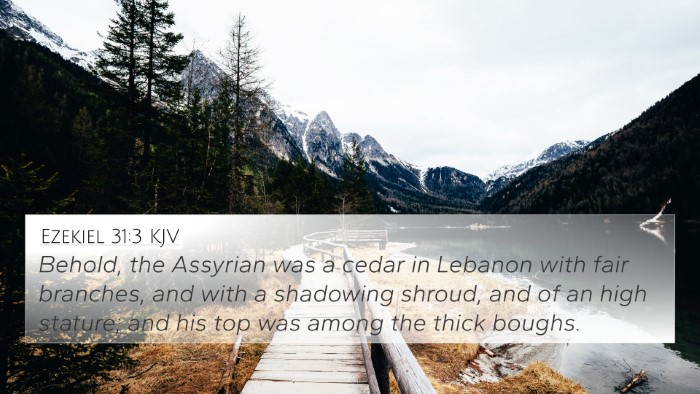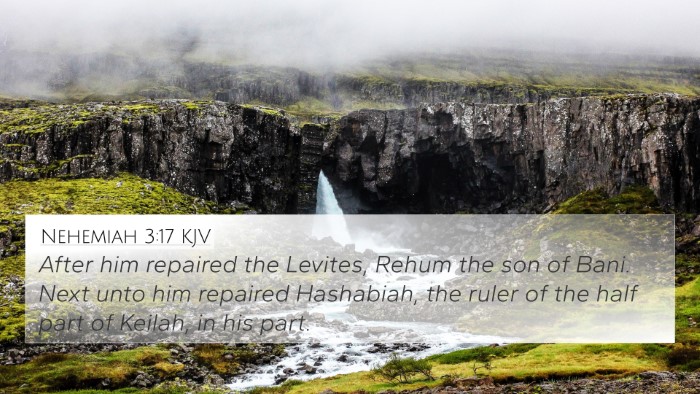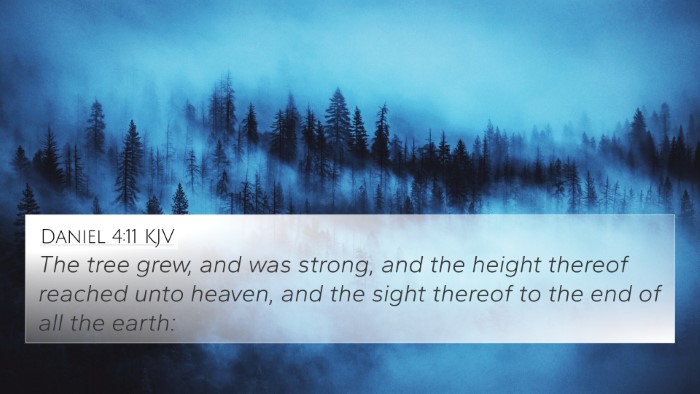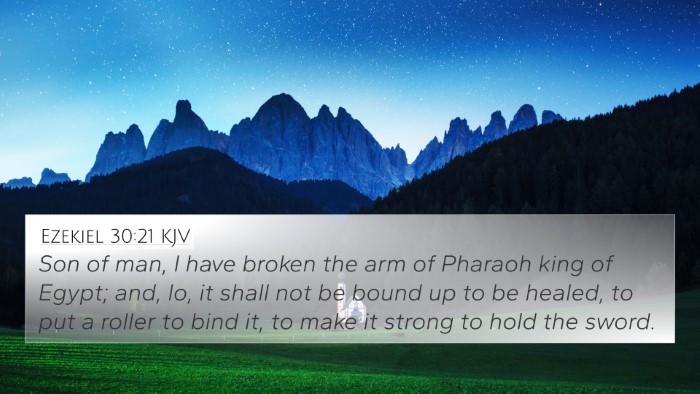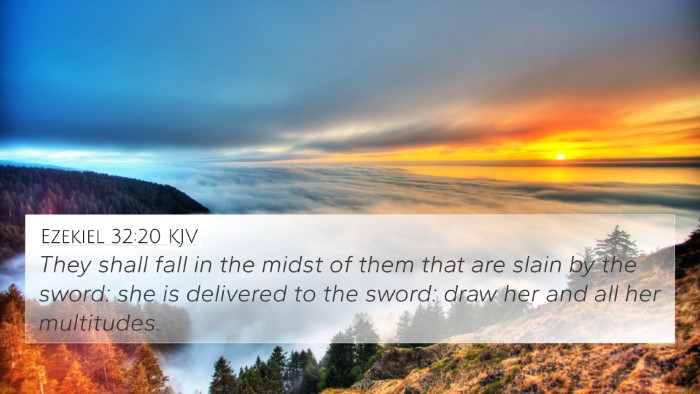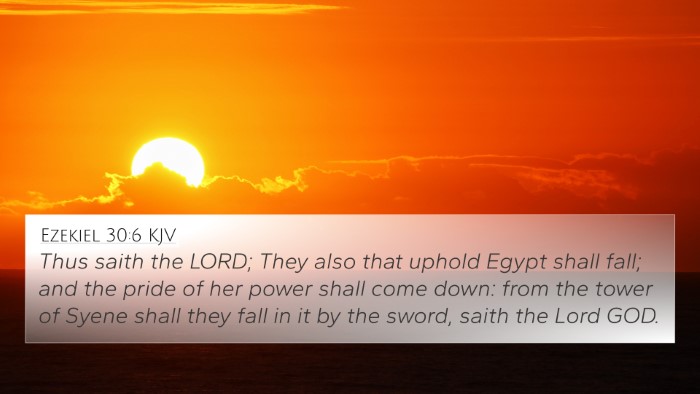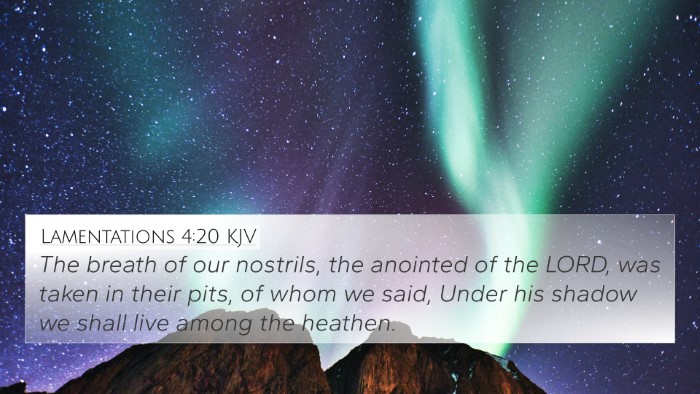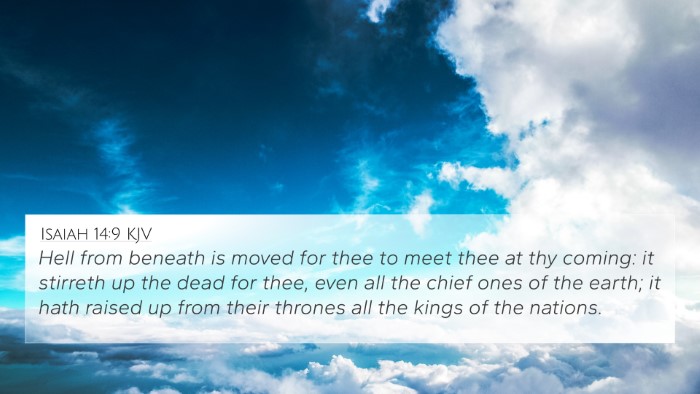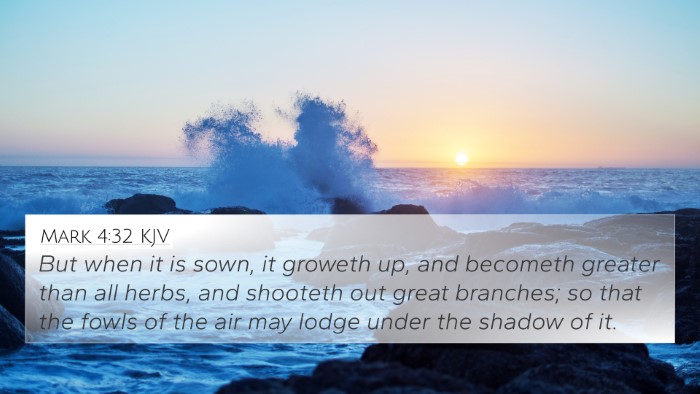Bible Verse Meaning: Ezekiel 31:17
Ezekiel 31:17: "They also went down into hell with it, unto them that be slain with the sword; and they that were his arm, that dwelt under his shadow in the midst of the heathen."
This verse features a powerful metaphor concerning the fall of a great empire, often symbolized through the imagery of trees representing rulers and nations in Ezekiel's prophecies. The connection to death and judgment illustrates the consequences of pride and arrogance amongst powerful nations.
Summary of Insights from Public Domain Commentaries
In exploring Ezekiel 31:17, several biblical commentators provide valuable perspectives:
-
Matthew Henry:
Henry highlights the imagery of trees as references to great kings and nations, emphasizing that the fate of the proud is a shared downfall. He discusses the inevitability of judgment that leads to universal death, likening the scene to a grand judgment in the afterlife.
-
Albert Barnes:
Barnes elaborates on the idea that the great trees in the previous verses represent the powerful empires of Egypt and Assyria, which fall to divine judgment. This verse illustrates that those who were dependent on such greatness will also meet a similar fate, emphasizing the transitory nature of earthly power.
-
Adam Clarke:
Clarke discusses the historical background of the nations and the fallen powers. He points out that this imagery serves to warn Israel against relying on Egypt or any other nation rather than God, revealing the dangers of misplaced trust.
Bible Verse Cross-References
Understanding Ezekiel 31:17 becomes richer when cross-referencing it with related scriptures:
- Isaiah 14:9-10: This scripture parallels the theme of rulers descending to Sheol, emphasizing judgment against the proud.
- Ezekiel 32:18: This follows a similar context, discussing the fate of nations and arrogant leaders.
- Daniel 4:30-32: The tale of Nebuchadnezzar’s pride and downfall echoes the warnings in Ezekiel.
- Revelation 20:10: This ties into the ultimate end of opposing forces against God, showcasing the eternal consequences of pride.
- Proverbs 16:18: The verse states, "Pride goes before destruction," encapsulating the moral lesson in Ezekiel.
- Jeremiah 46:17: This passage highlights the judgment upon nations, resonating with Ezekiel's message.
- Ezekiel 34:18: The Lord's commentary on the shepherds of Israel offers insights into leadership and responsibility.
Thematic Connections
Thematically, Ezekiel 31:17 addresses:
- Judgment and the fate of the proud
- The interdependence of nations
- Divine sovereignty over human affairs
- The inevitable fall of those who lead others astray
Inter-Biblical Dialogue
When considering the cross-references mentioned above, it's essential to explore:
- How the themes of pride and downfall are addressed in both Old and New Testaments.
- Comparative studies of proverbs and prophetical messages regarding divine judgment.
- The connections between the tales of Babylonian rulers and the ultimate spiritual lessons taught in prophetic texts.
Tools for Bible Cross-Referencing
To dive deeper into biblical texts, consider utilizing:
- Bible concordance to find similar themes and verses.
- Bible cross-reference guides that elucidate connections between texts.
- Online resources for scripture analysis and thematic studies.
Conclusion
In Ezekiel 31:17, we observe a stark warning against pride and the consequences of relying on human power. The deep connections with other scriptures provide a comprehensive understanding of falling from power and the divine orchestration of judgment, making this verse a crucial point of reflection for believers seeking to understand the theological themes of pride, judgment, and divine sovereignty.
